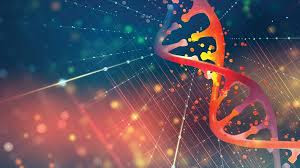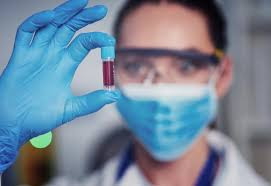Stem Cell Therapy: A New Start for Healthy Body
Stem Cell Therapy: A New Start for Healthy Body
There are a lot of controversy related with stem cells but did you know that there are actually have a lot of benefits for the health and medical fields. Nowadays, stem cells already have many applications
for treating disease. Their magical potential to treat a lot of diseases in
the future shows that nowadays the scientists are working so hard to discover more about stem cells function and how they can treat some of the more serious
diseases affecting the world.
Stem Cells and Human Development
What is Stem Cell Therapy?
Stem cell therapy is a set of techniques that aim to replace cells damaged or destroyed by disease with healthy functioning ones. The techniques themselves are still relatively new but their applications and benefits are broad. Some of the diseases they can help include
Stem Cells Therapy Applications
- Parkinson's disease
- Type I diabetes
- Arthritis
- Burn victims
- Cardiovascular diseases
- Cancer
Potential to Reverse Diseases
1) Heart Attack
2) Diabetes Type 1
- People who are diagnosed with type I diabetes have abnormal insulin
regulation. The pancreatic cells that would normally produce insulin
are destroyed by the patients own immune system. Research is now
suggesting that it may be feasible to control stem cell differentiation
so that stem cells are guided in the laboratory to generate specialised
cells capable of producing insulin. The hope is that these cells could
be transplanted into diabetics, removing their need for insulin
injection.
3) Parkinson's Disease
- Parkinson's disease entails the destruction of cells producing a
neurotransmitter called dopamine. A recent study with stem
cells found that transplanted cells were able to function and release
dopamine, relieving the symptoms of Parkinson's disease. There were,
however, side effects reported that were thought to correlate with a
hypersensitivity to dopamine or excessive dopamine levels. Despite the
side effects, the results have still been impressive and further
research should provide more insight into this potential therapy.
4) Genetic Defects
- Even more promising is the
potential to address genetic defects that are present from birth by
restoring function and health with the introduction of normal healthy
cells that do not have these defects.
- Burn
victims tend to endure an enormous amount of pain from their wounds as
well as frustration from the challenges of healing. Instead of donor
tissues being donated, stem cells could be used to produce new and
healthy tissues. This is essentially similar to therapies already being
used, such as bone marrow transplants, where stem cells create
different specialised blood cells.Scientists aim to locate and
remove specific stem cells from a tissue and then trigger them to
differentiate outside of the body before transplanting them back into
the patient to replace damaged tissues.
5) Burn Victims
- Burn
victims tend to endure an enormous amount of pain from their wounds as
well as frustration from the challenges of healing. Instead of donor
tissues being donated, stem cells could be used to produce new and
healthy tissues. This is essentially similar to therapies already being
used, such as bone marrow transplants, where stem cells create
different specialised blood cells.Scientists aim to locate and
remove specific stem cells from a tissue and then trigger them to
differentiate outside of the body before transplanting them back into
the patient to replace damaged tissues.
6) Cancer
- Many people may have already heard of bone marrow transplants, which are
a type of stem cell transplant that have been used for years now. This
type of transplant is used for cancers such as leukaemia, where it
allows the marrow to receive fresh and healthy cells, which then
multiply and give rise to the different types of blood that are
necessary for life. This procedure is often a life saving one for those
whose marrow has been destroyed by chemotherapy and radiation. Current
research is focused on overcoming the immunological challenges of cell
rejection so that the success rate of a bone marrow transplant can be
improved.
7) Infection Fighting (Covid-19)
- Infection can causing inflammation and organ damage to the body. For example those who are Covid-19 patients will suffered with pneumonia which is lung inflammation. The bone marrow stem cells used are known as mesenchymal stem cells.
These particular stem cells were already known to be beneficial to
supporting a person’s immune system and helping repair tissues that had
been damaged. Mesenchymal stem cells are isolated in the bone marrow of
adults and have previously shown promise in treating other health
conditions. It will form healthy cell and tissue that will function properly and improve patients health.
8) Aging
- There is increasing evidence that the aging process can have adverse
effects on stem cells. As stem cells age, their renewal ability
deteriorates and their ability to differentiate into the various cell
types is altered.Therefore, with the stem cell therapy the elderly's ability of regenerate and repair can be
improved by application of advance stem cell technology. It can delay
the aging process and treat aged diseases.
As a conclusion
Indeed, stem cell therapy is one of the latest technology to treat the diseases. Finally, there is a hope for everyone start their life for more quality and happy with a better health. Everyone wants to be healthy and happy. Why still in doubt? let's try stem cell therapy now and live longer!














Comments
Post a Comment